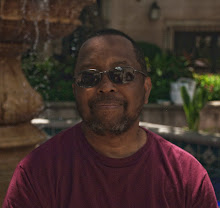
By JONATHAN M. KATZ and DANICA COTO
POINTE-A-PITRE, Guadeloupe (AP) — Protests that have nearly shut down the French Caribbean islands of Guadeloupe and Martinique are not just about demands for lower prices and higher wages: For demonstrators they are no less than a battle against the vestiges of slavery.
Afro-Caribbean islanders — most of whose forbears toiled in the sugarcane fields under the yoke of slavery more than 160 years ago — not only resent France's handling of the global economic crisis, they have long resented that slaveholders' descendants control the economy on both islands.
They also suspect that businesses earn too high a profit on goods, most of which are imported.
This resentment against slaveholder descendants, known as bekes (bay-KAY) has lent an especially sharp edge to weeks of demonstrations that at times have erupted in gunfire, arson, looting, and the death of one activist in Guadeloupe.
"They've got the money, they've got the power, they've got Guadeloupe," snapped protester Lollia Naily. "This is not a race thing. It is a money thing and it is a power thing."
Protesters in Martinique also have rejected the bekes, with frequent chants of "Martinique is ours, not theirs!" Bekes own most industries in Martinique — but represent only about 1 percent of the island's 401,000 residents.
Deep economic and social disparities divide France from its overseas possessions: Unemployment in Guadeloupe is about 23 percent, compared with 8 percent on mainland France, and 12 percent of islanders live in poverty, compared with 6 percent of mainlanders, according to the most recent statistics.
The conflict extends beyond the Caribbean: Islanders living in mainland France are relegated to low-level jobs and are absent from senior positions in business, the military and government, revealing a "color fracture in French society," said Patrick Lozes, head of the Representative Council of Black Associations.
Islanders demand that France treat them as equals — wherever they are living — and question why food is more expensive here than on the mainland.
"My ID says I'm French," said 28-year-old Philippe Delag. "Guadeloupe is part of France."
The island certainly looks the part: French flags fly from government buildings, and tiny Citroens and Peugeots whiz along well-maintained highways. Residents switch easily from Creole to French in conversations.
On one concrete median divider in Guadeloupe is the spray-painted message, "We want 200 euros," reflecting protesters' demands for a 200-euro ($250) monthly raise for low-paid workers, who now make roughly euro900 ($1,130) a month.
The French government, which has insisted that any salary increases must come from the private sector, announced it could provide extra government benefits totaling nearly euro200 ($250) extra a month for low-income workers.
And both sides in Martinique have reached an agreement that would lower prices on 100 products by 20 percent. Protest leaders and government officials are still negotiating to lower the costs of housing, gasoline, water and electricity.
But the problems extend beyond economics, protesters say.
Serge Romana, president of an association that commemorates the abolition of slavery in the French territories, said French President Nicolas Sarkozy "must absolutely abolish all traces of neocolonialism and vestiges of slavery in the overseas regions."
Sarkozy himself — who raised islanders' hackles when as interior minister in 2005 he endorsed a bill requiring textbooks to recognize the "positive role" of colonialism — acknowledged last week that old wounds still fester.
"I know the feeling of injustice that you have, given the inequalities and the discrimination," the president said in a television appearance on Thursday aimed at quelling the unrest. "How can we justify monopolies, overly high profits ... and, why not say it, forms of exploitation that should not have any place in the 21st century?"
In Paris, thousands of people took to the streets on Saturday to show their support for striking workers and to pay homage to Jacques Bino, the labor-union activist killed in Guadeloupe last week.
Despite such signs of solidarity, most of France doesn't understand the islanders' demands, Lozes said.
"They don't see it as a demand for justice, but rather as a demand for charity," he said.
Jean-Luc de Laguarigue, a beke, said tensions have festered over generations because France and its islands have not explored the painful past. He said he knows of no slavery museum in France. The subject is generally taboo in schools.
But Laguarigue insisted that bekes no longer represent power and colonial force, and suggested that the islands — not Paris — should decide what is best for them.
The protests are "not a call for war, but for dignity," he said.
On Sunday, mourners dressed in white packed a gymnasium in the cane-growing town of Petit-Canal to hear poems about struggle and rousing songs in homage to Bino, the dead labor-union activist, whose body has been displayed in an open casket on the island for two days.
"We want respect," said Adele Goram, 50, an islander from a nearby town who attended. "We live in France and there should be no difference between France and Guadeloupe."
Several islanders blame the arrival of 450 French riot police for the violence that has erupted during protests — and say it shows how France treats the islands like colonies.
Martinican painter and intellectual Victor Permal described Paris' proposals as "general and blurry" and criticized the decision to send force, saying France has often overreacted when problems arise on the islands.
"The people are starting to gain a clear notion of what belongs to them," Permal said. "So they become conscious that it is not France who should define their path and needs."








